
1. San Francisco, California
Why it’s sharp: Farmers’ markets
The City by the Bay has 30-plus venues, which helps ensure that residents fill up on plenty of brain-healthy foods. “Antioxidants from a diet high in fruits and vegetables may protect brain cells from the wear and tear of aging,” says Gary Small, MD, director of the UCLA Longevity Center in Los Angeles. The city also has lower than average obesity rates; one 2011 study found that being overweight or obese raised dementia risk by 80 percent.
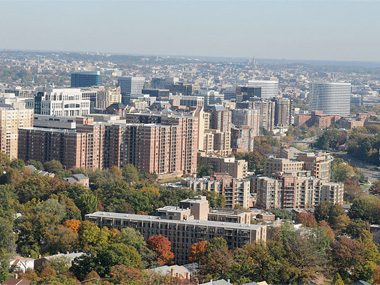
2. Arlington, Virginia
Why it’s sharp: Above-average education rates
Seven in ten residents hold at least a bachelor’s degree, far above the national average of 30 percent. Education is correlated with brain health: One Neurology study found that older adults with at least a high school education were three times likelier to avoid cognitive decline than people with less education. This may explain why death rates from Alzheimer’s here are much lower than average.
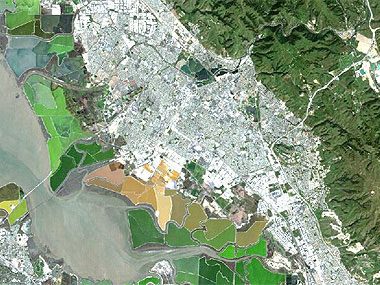
3. Fremont, California
Why it’s sharp: Low smoking rate; and high creativity levels
Just under 10 percent of people here smoke, about half the national average (it’s linked to higher rates of dementia and stroke). This Silicon Valley city is also known for creative thinking (one in 100 people received a patent in 2010). Whether you invent a search engine or learn a new language, lifelong learning boosts brain cell connections.
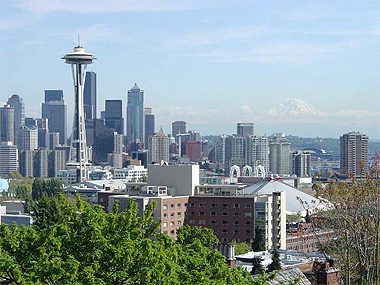
4. Seattle, Washington
Why it’s sharp: Nearly everyone exercises
“Move it or lose it” is the motto here, where 83 percent of residents—one of the highest rates in the country—are active. By increasing blood flow to the brain, exercise is medicine for the mind. One University of Pittsburgh study found that walking for 45 minutes three times a week helped reverse age-related memory loss.

5. Madison, Wisconsin
Why it’s sharp: Diabetes prevention programs
The sweet news: Adults in Madison are much less likely than the national average to be diagnosed with type 2 diabetes, which attacks the brain by damaging blood vessels. One Japanese study showed that type 2 diabetes increased the chance of Alzheimer’s disease by 35 percent. The city targets obesity—a big contributor to diabetes—with programs that encourage physical activity and access to healthy food from farmers’ markets.

6. Portland, Oregon
Why it’s sharp: Biking; and seasonal eating
With 320 miles of bike lanes, 21,000 rides and races hosted annually, and programs that promote biking to work, Portland ranks high for brain-bolstering exercise. Another healthy habit of residents: seasonal eating. Many restaurant menus here change weekly, and variety matters for brain health. A Swedish study found that antioxidants in different fruits and veggies work synergistically to prevent blood vessel damage linked to stroke and memory loss.
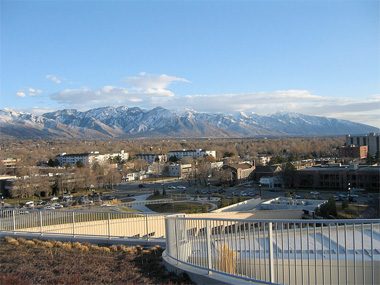
7. Salt Lake City, Utah
Why it’s sharp: Libraries
With library circulation rates nearly double the national average, bookworms here read their way to sharper minds. Mayo Clinic research shows that activities that require thinking and concentration lower the odds of mild cognitive impairment, a precursor to Alzheimer’s.
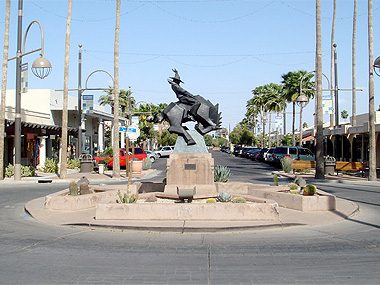
8. Scottsdale, Arizona
Why it’s sharp: Parks
This city has 72 acres of parkland for every 1,000 residents, one of the highest rates in the country. “Being outdoors is a great mood lift,” says memory expert Cynthia Green, PhD. One study found that people who live within a half mile of green space are 20 percent less likely to be depressed, and research links depression to higher Alzheimer’s risk.

9. St. Paul, Minnesota
Why it’s sharp: Community
City dwellers are never far from a stimulating social environment, with more than 30 recreation and community centers, one of the nation’s highest per capita rates. Stimulating conversations fire up the brain’s frontal lobe, the area responsible for decision making. And social networks help protect against brain decline, research from the Rush Alzheimer’s Disease Center shows, possibly by strengthening nerve cell connections.

10. Asheville, North Carolina
Why it’s sharp: Spirituality; and volunteerism
The county’s 382 churches helped this city’s top ranking. One Canadian study suggested that being spiritual may slow cognitive decline, thanks to increased sociability, less stress, and more happiness. Volunteering also boosts Asheville’s brain trust: Last year, volunteers in this 83,000- person city supplied clothes and food to some 41,000 in need.